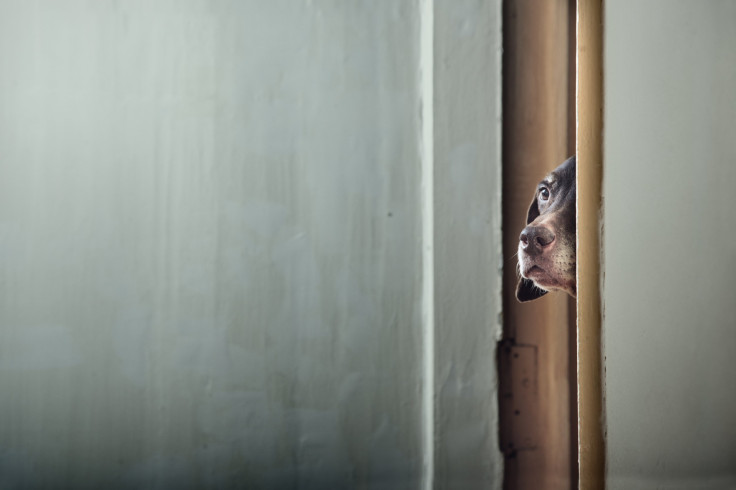Man's Best Friend Can Tell When You're Lying: How A Dog’s Trust Can Be Betrayed

Dogs are some of the smartest and most loyal companions you could have. So don’t be a doggone liar, according to a new study out of Japan published in the journal Animal Cognition, because your dog will know when you bend the truth or flat-out lie.
Researchers put 34 dogs to the test to see if they could sort out a human’s truth from a lie using food as leverage. In the first round, a human participant pointed at a container with food inside and showed the dog what was in the container, indicating trustworthy advice. In the second round, the human did the same thing, only he pointed to an empty container and revealed the contents or lack thereof to the dog afterward. In round three, the human repeated round one by pointing to a treat-filled container. But this time the dogs didn’t believe the humans and learned not to trust his instructions.
"They decide whether to follow human commands by reading the reliability of the person," the study’s lead author Akiko Takaoka, a researcher from Kyoto University, told BBC. "Dogs have more sophisticated social intelligence than we thought. This social intelligence evolved selectively in their long life history with humans."
Their relationship with humans has become so tightly ingrained in their own existence, they’ve learned how to read cues using a higher level of assessment compared to their ancestors. Dogs were domesticated approximately 12,000 years ago during the agricultural revolution, when wolves began scavenging through human scrap heaps, according to a paper published in the American Scientist. Their relationship history with humans has continuously evolved into a deep-rooted interaction that has now developed as far as determining trustworthiness. The blind loyalty to which dogs are subscribed to may no longer be what it once was hundreds of puppy litters ago.
The moment the dogs decided not to respond to the human’s pointing cues, it revealed a level of internal assessment on whether or not to trust the human again. After the first set of rounds, a new human replaced the first and followed the same experiment. The same set of dogs learned from the past person and “devalued the reliability of a human” much faster than the first one.
The research team plans on conducting the same tests on related species, such as wolves, to see if the dog’s liar radar is a mark of domestication or if it’s a consistent mark of canine intelligence across the board.
Source: Fujita K, Takaoka A, Maeda T, and Hori Y. Do dogs follow behavioral cues from an unreliable human? Animal Cognition. 2015.



























